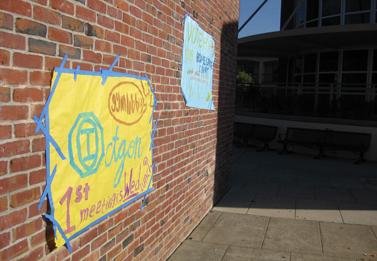 Promotion equality makes its way onto the club scene
Promotion equality makes its way onto the club scene
There shouldn’t be too much worry, then, about Club Commission’s new policy stating that clubs can only promo in classrooms where the club and class subject are related. For some large service clubs such as Octagon and Interact, this initially proves a problem, since there often is not a defined subject for service clubs—even FBLA was impacted as it was denied promotion in Literature classes.
The million dollar question is whether or not this limiting promotional policy will drastically affect new membership.
Most likely? No.

Truth is, big clubs that have been around for a while will still see plenty of new members. Word of mouth among students is a pretty effective promotional device—and if that doesn’t do the job, Club Promo Day and its delicious counterpart are a very good Plan B. The critical part of Club Commission’s policy for clubs is knowing how to make the change advantageous. While clubs may lose the few people they reel in during in-class promotion, they can make up for it by increasing the use of school-wide announcements, posters, fundraisers and activities to promote and give students reasons to join. Events and fundraisers like the Interact Barbecue or Octagon Pie Toss that occur during the beginning of the year are excellent ways to broadcast a club.
With the policy, every club is affected in the same way, though some clubs will inevitably be at a disadvantage without an extensive member base to help with promotion. However, the policy itself is objective and does not favor older, newer, more active or larger clubs over others.
In the end, clubs that are meant to succeed—clubs that have officers that know to use all opportunities available to them despite Club Commission closing some previously available doors — will get members. Inefficient clubs won’t. Being resourceful and planning around this change will be a rewarding approach, and that is what clubs need to do instead of worrying about having empty meetings.








